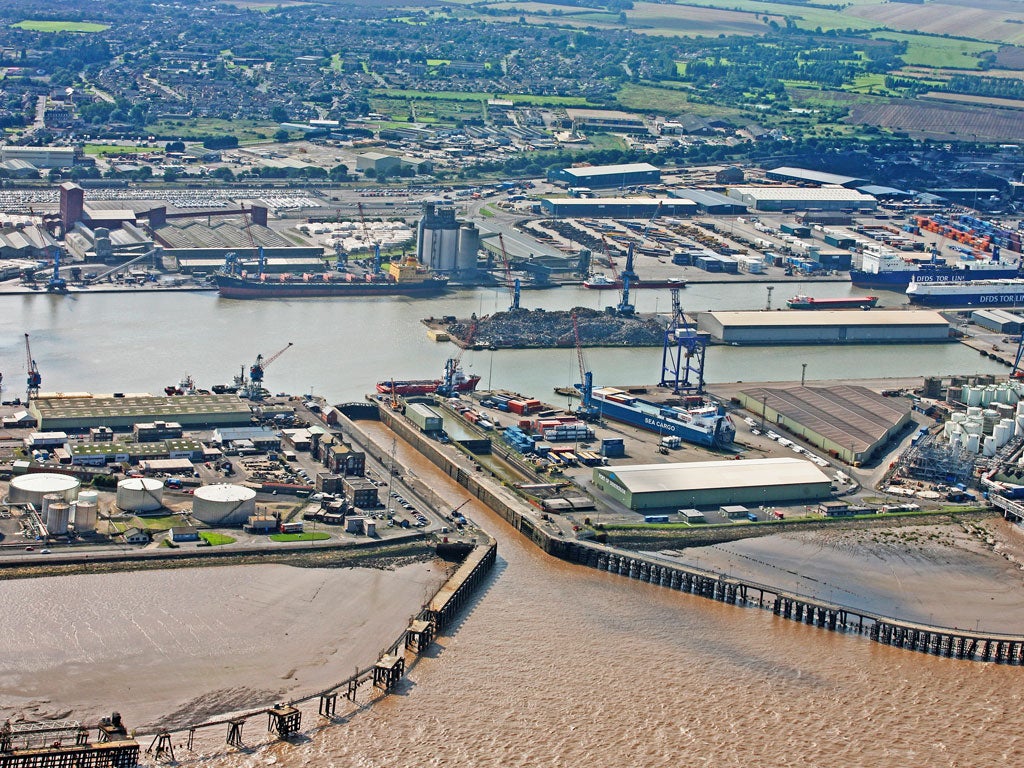Union anger at low-risk rating for tough jobs
Health and Safety Executive reclassifies many physical trades despite 171 workers killed last year

Your support helps us to tell the story
From reproductive rights to climate change to Big Tech, The Independent is on the ground when the story is developing. Whether it's investigating the financials of Elon Musk's pro-Trump PAC or producing our latest documentary, 'The A Word', which shines a light on the American women fighting for reproductive rights, we know how important it is to parse out the facts from the messaging.
At such a critical moment in US history, we need reporters on the ground. Your donation allows us to keep sending journalists to speak to both sides of the story.
The Independent is trusted by Americans across the entire political spectrum. And unlike many other quality news outlets, we choose not to lock Americans out of our reporting and analysis with paywalls. We believe quality journalism should be available to everyone, paid for by those who can afford it.
Your support makes all the difference.Relatives of a young man killed in January while working at Immingham docks on the Humber estuary were among thousands who gathered in services nationwide yesterday to mark Workers' Memorial Day.
Tim Elton, a 28-year-old agency worker who died when a mound of coal collapsed on the ship MV Excalibur, was the fifth person to be killed on the docks in Britain since October. His colleagues tried desperately to dig him out of the coal pile with their bare hands.
The dead man was said to have recently worked 26 night shifts without a break and, it is reported that when health and safety inspectors investigated his death they discovered another hazard so great – but still unspecified – that they issued a stop work notice at Immingham because of "the risk of serious injury".
Services to remember those killed by their jobs took place in towns and cities across the country yesterday. Not including occupational diseases such as asbestos-related cancers, 171 people were killed by their work last year. At Immingham's war memorial, Mr Elton's parents laid a wreath to commemorate their son and others killed at work.
Despite the high death rate among dock workers, it is one of several jobs that the Health and Safety Executive (HSE) is rebranding as "low risk", meaning docks will no longer be subject to spot-check inspections to help prevent fatal accidents.
Experts say jobs that are up to four times more deadly than the building trade will become "dangerously under-regulated". The executive plans to cut inspection costs and roll back on health and safety. Dock workers, farmers and manufacturers are among those who will see their industries classified as "low risk", meaning they will no longer face proactive inspections; instead, investigators will go in only after a death or serious incident.
Hilda Palmer of Hazards, a campaign group, said: "If the HSE aren't going out and doing spot checks – and companies know that this isn't happening – it'll be very dangerous and make the situation worse."
Construction work, which will still be subject to on-the-spot inspections, results in 2.4 deaths per 100,000 workers. This is a significantly lower rate than farming and dock work which, although they employ fewer people, have death rates of 10 and 8 per 100,000 respectively.
Herbert Styles, a Unite convener who organised several of yesterday's memorials, said: "These are cuts that will cost lives. If they don't let the HSE do pre-emptive inspections, then the only time they'll go in is to investigate deaths – when it will be too late. It would make such industries dangerously under-regulated."
Anne Jones, whose 24-year-old son Simon was killed at Shoreham dock in 1998, was appalled at the move to reclassify the industry as low risk. She told Hazards Magazine: "I was told at the time that working docks were high risk, and so I find it baffling that the Government has decided that docks are now classified as low risk and not in need of proactive inspections by our safety police."
A spokesman for the Health and Safety Executive said: "No industries are exempted from the requirement to maintain effective control and management of the risks they create, and agriculture and quarries are priority sectors for HSE. The sectors in which HSE prioritises proactive inspection are those where there are both significant problems and proactive inspection is likely to be both efficient and effective."
Join our commenting forum
Join thought-provoking conversations, follow other Independent readers and see their replies
Comments